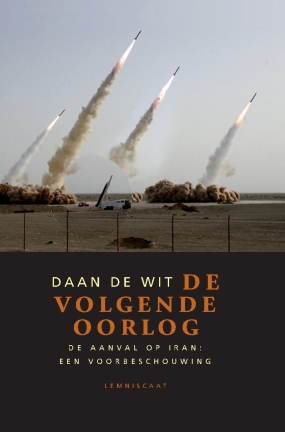By Daan de Wit
Translated by Ben Kearney
Regime change is not always preceded by a brutal war. This can be seen in the Arab world, where a wave of revolutions is radically changing the political map. These are spontaneous revolutions, says Wadah Khanfar, the Director General of Al Jazeera. In saying this, he is giving voice to the prevailing opinion, though it's one that calls for some commentary.
Revolutions - be they spontaneous or not - are more appealing than wars. They cost less in terms of blood and money. This explains the great interest taken by the West in the development of programs designed to bring about revolutions. These programs make use of a template, a pattern. This can be seen in the color revolutions in Eastern Europe and the Green Revolution in Iran. Now we have the Arab wave, and again the same elements are back.
'Enough'
 'The Egyptian revolt was years in the making. Ahmed Maher, a 30-year-old civil engineer and a leading organizer of the April 6 Youth Movement, first became engaged in a political movement known as Kefaya', write David Sanger and David Kirkpatrick in The New York Times. Kefaya is Arabic for 'enough'. The same term was used during rebellions in Albania: mjaft, and in Georgia: kmara. Variants of this were used in Ukraine: pora, which means 'it's time'. In Belarus, zubr was the cry, which means 'bison', the country's national symbol. And in Serbia, the word otpor could be heard, Serbian for 'resistance'. All of these names stand for resistance movements which - based on the same pattern - cut the legs out from underneath their respective regimes, some with more success than others.
'The Egyptian revolt was years in the making. Ahmed Maher, a 30-year-old civil engineer and a leading organizer of the April 6 Youth Movement, first became engaged in a political movement known as Kefaya', write David Sanger and David Kirkpatrick in The New York Times. Kefaya is Arabic for 'enough'. The same term was used during rebellions in Albania: mjaft, and in Georgia: kmara. Variants of this were used in Ukraine: pora, which means 'it's time'. In Belarus, zubr was the cry, which means 'bison', the country's national symbol. And in Serbia, the word otpor could be heard, Serbian for 'resistance'. All of these names stand for resistance movements which - based on the same pattern - cut the legs out from underneath their respective regimes, some with more success than others.
Facebook
Ahmed Maher's Kefaya wasn't getting very far in Egypt until 2008, when his group called for a general strike on the 6th of April. To promote the strike he set up a Facebook page that ultimately became the center of the campaign. The strike was not a huge success, yet it turned out to be a milestone in recent Egyptian history. It caught some attention in Tunesia. It was there that activists made contact with Maher through Facebook. Maher became increasingly active and began reading up on the story behind the Serbian Otpor movement, which had managed to knock Slobodan Milosevic off the throne.
 That story is one of Western governments and organizations whose objective is the overthrow of regimes in a nonviolent fashion. You can read the details in my book The Next War and in my series on Iran, and you can see how it works in the video I made. From this it's clear that there is money to spend. Think about the $400 million made available by President Bush and subsequently extended by Obama - money which, among other things, was used to carry out attacks in Iran. And think of the tens of millions of dollars set aside by the American and Dutch governments in 2006 to bring about a peaceful transition in Iran. A portion of the Dutch millions went to Freedom House, one of the many Western organizations devoted to regime change in Iran.
That story is one of Western governments and organizations whose objective is the overthrow of regimes in a nonviolent fashion. You can read the details in my book The Next War and in my series on Iran, and you can see how it works in the video I made. From this it's clear that there is money to spend. Think about the $400 million made available by President Bush and subsequently extended by Obama - money which, among other things, was used to carry out attacks in Iran. And think of the tens of millions of dollars set aside by the American and Dutch governments in 2006 to bring about a peaceful transition in Iran. A portion of the Dutch millions went to Freedom House, one of the many Western organizations devoted to regime change in Iran.
'Trick' used against Milosevic employed anew
A quote from the series of articles on Iran makes it clear how regime change can be realized without declaring war: 'Ian Traynor of the British newspaper The Guardian describes how the 'trick' that was employed with Milosevic was hauled out for the Orange Revolution in the Ukraine in November of 2004, funded and organized by the American government, 'deploying US consultancies, pollsters, diplomats, the two big American parties and US non-government organisations'. [...] The Washington Post describes how, with American taxpayer money, 5000 cans of spray paint were purchased that were used to paint anti-Milosevic statements on walls, and 2.5 million stickers were printed up with the slogan 'He's finished'. A key role was reserved for Richard Miles, the U.S. ambassador in Belgrade. Traynor says that these operations are now so slick that the methods have become a template for winning other people's elections. The nonviolent overthrow of regimes as a proven alternative to war'.
Also read part 2 of this article.




 'The Egyptian revolt was years in the making.
'The Egyptian revolt was years in the making. 